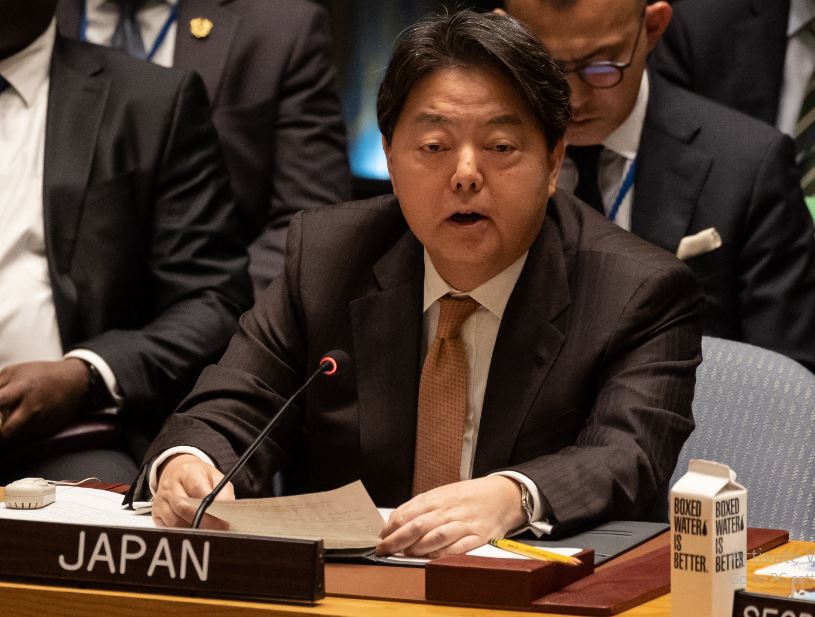Beijing: Japan has unveiled a new plan to provide “like-minded” countries especially in Asia with military aid as it looks to expand its influence in the Indo-Pacific region to counter China’s aggressive push over Taiwan and the South China Sea issues.
The guidelines announced by Tokyo early this month included a new programme to strengthen the militaries of like-minded countries by providing “official security assistance” – a move that breaks with its previous policy of avoiding the use of development aid for military purposes other than disaster relief, the Japan Times reported.
Japanese Foreign Ministry officials said the Philippines will be one of the first beneficiaries of Overseas Security Assistance (OSA), with Malaysia, Bangladesh and Fiji also among those being considered, the report said.
Japan, a member of the Quad alliance consisting of the US, India and Australia, is actively pursuing the Indo-Pacific strategy which China claims aimed at countering its rise.
Tokyo’s decision to use international aid for military purposes is a ‘paradigm shift’ but won’t lead to an arms race in Asia, the Hong Kong-based South China Morning Post reported Thursday.
The move will not only build up the defence capabilities of Asian nations amid ‘changing security dynamics’, but boost the competitiveness of Japan’s defence sector, it said.
Japan’s new policy of defence aid to neighbours was announced after this month’s visit of Japanese Foreign Minister Yoshimasa Hayashi to China.
In his talks with Hayashi April 2, Chinese Foreign Minister Qin Gang said Japan should not “help a villain do evil”, apparently referring to Tokyo’s close ties with Washington.
This was the first visit by the Japanese Foreign Minister to China since 2019.
China and Japan have a long-festering dispute over uninhabited East China Sea islands controlled by Japan but claimed by China.
The islands are known as the Senkakus by Japan, while China named them as Diaoyu.
Taiwan also claims the islands but has forged agreements with Japan to avoid any conflict as Tokyo maintains close defence ties with Taipei.
The purpose of Tokyo’s new initiative is to “contribute to the creation of a desirable security environment for Japan,” while maintaining Japan’s “basic principles as a peaceful nation,” according to the Japanese ministry statement.
The OSA is being presented as an expansion of Japan’s official development assistance (ODA) – one of the world’s largest foreign aid programs – to cover projects “for the benefit of armed forces and other related organisations,” the Japan Times report said.
The new framework was revealed as Tokyo moves away from a strict non-military approach to ties with its neighbours and looks to realise its vision of a Free and Open Indo-Pacific (FOIP), it said.
According to its fiscal 2023 budget, the Japanese government has set aside two billion Japanese Yen ($15 million) for OSA. Funding will be separate from the Yen 570.9 billion in economic and social development assistance that Tokyo provides to developing countries.
While this year’s modest OSA budget appears largely symbolic, especially compared with the ODA funds, experts say the decision to launch the program is significant, as it marks another step in Japan’s march toward a more robust and proactive defence posture that could ultimately allow it more leeway in defence transfers, Japan Times report said.
Tokyo has traditionally exercised self-restraint on arms exports and defense technology transfers.
Stephen Nagy, politics and international studies professor at the International Christian University in Tokyo, said Japan’s decision was due to the “changing security dynamics within the region”.
“I do not see this as a fundamental departure of international aid; rather, I see it as a continuation of the use of strategic partnerships to help build the security capabilities of like-minded countries,” Nagy told the Post.
Under existing partnerships, Japan had provided coastguard vessels and maritime domain awareness capabilities to various Southeast Asian countries including the Philippines, Malaysia and Indonesia.
PTI
